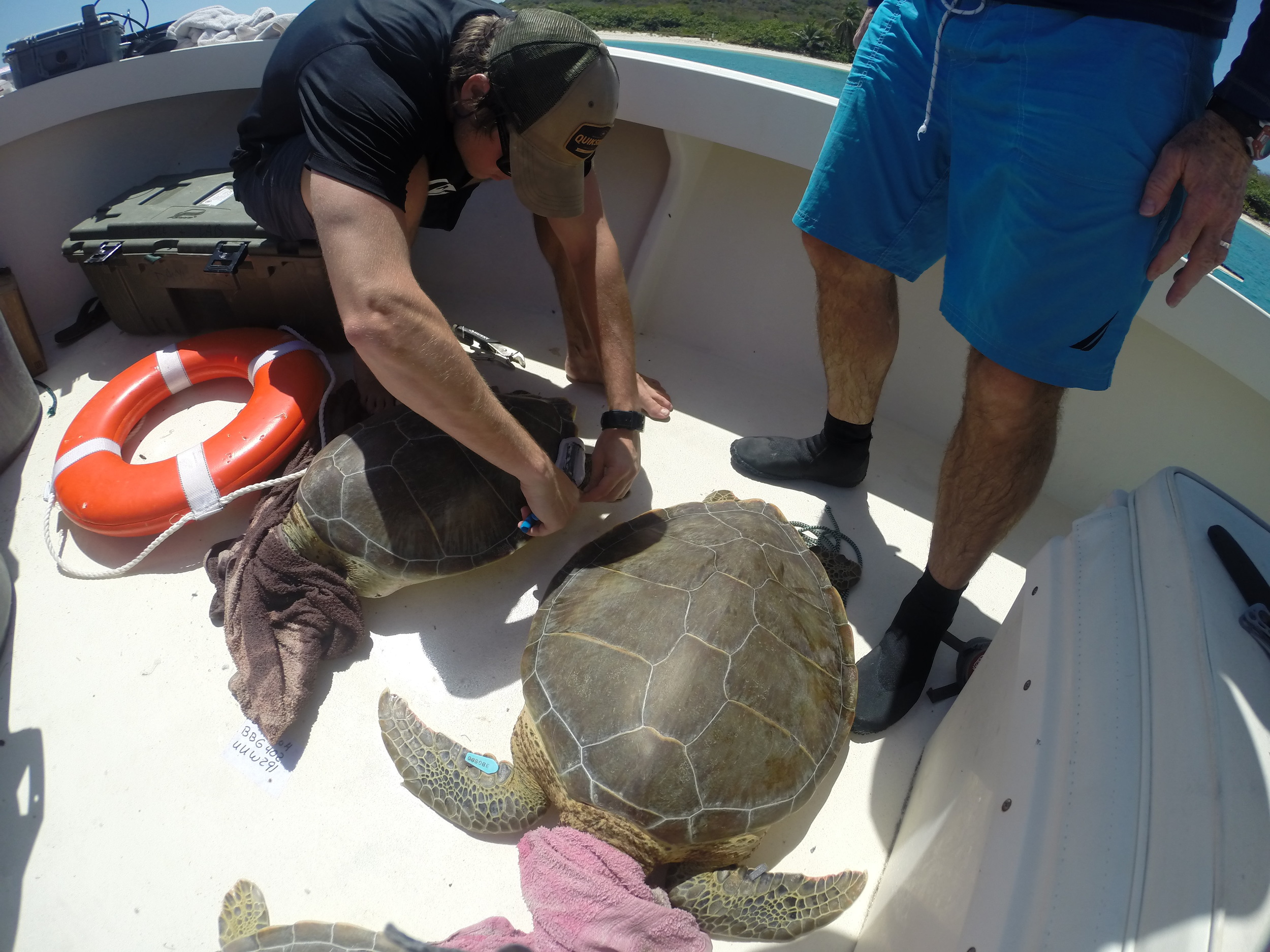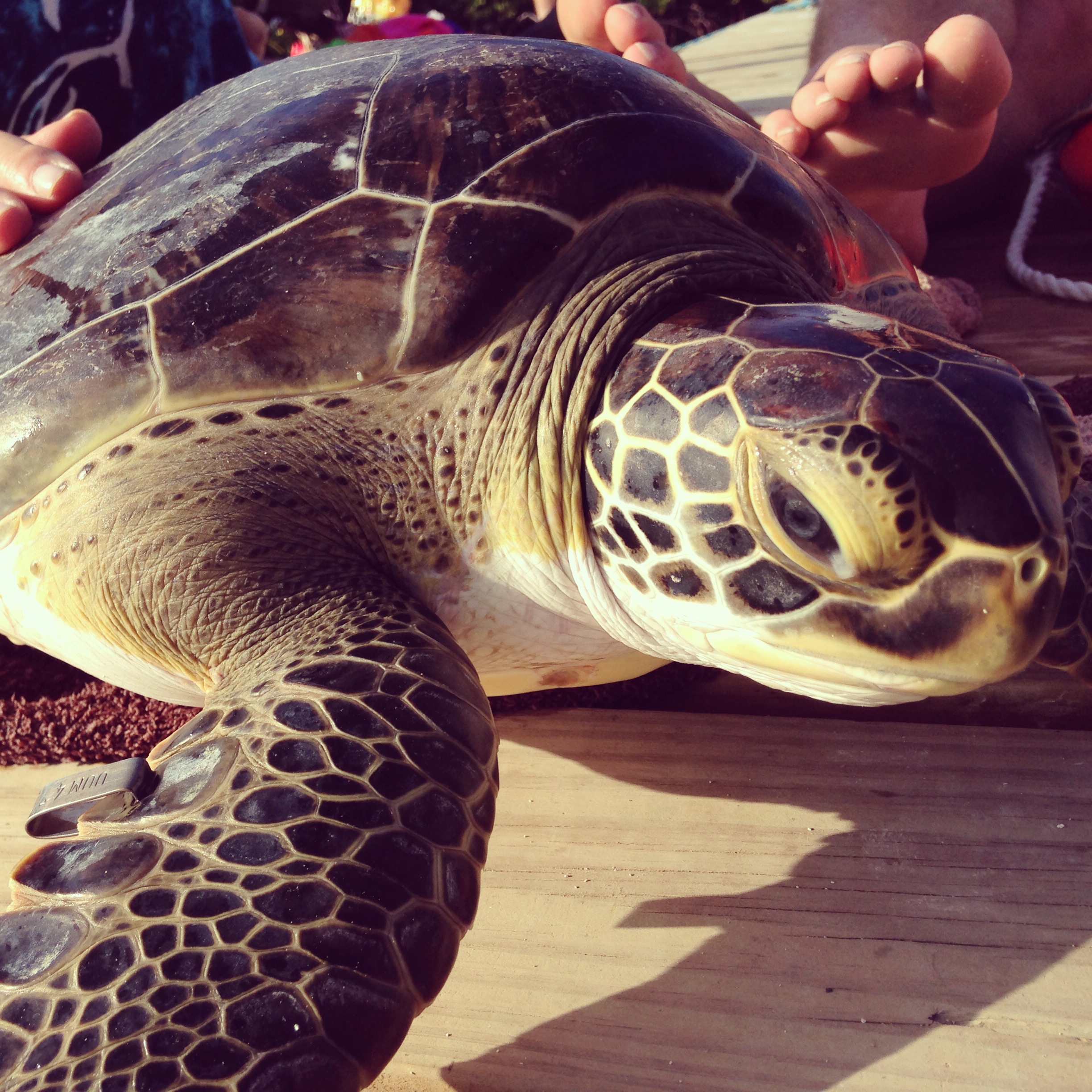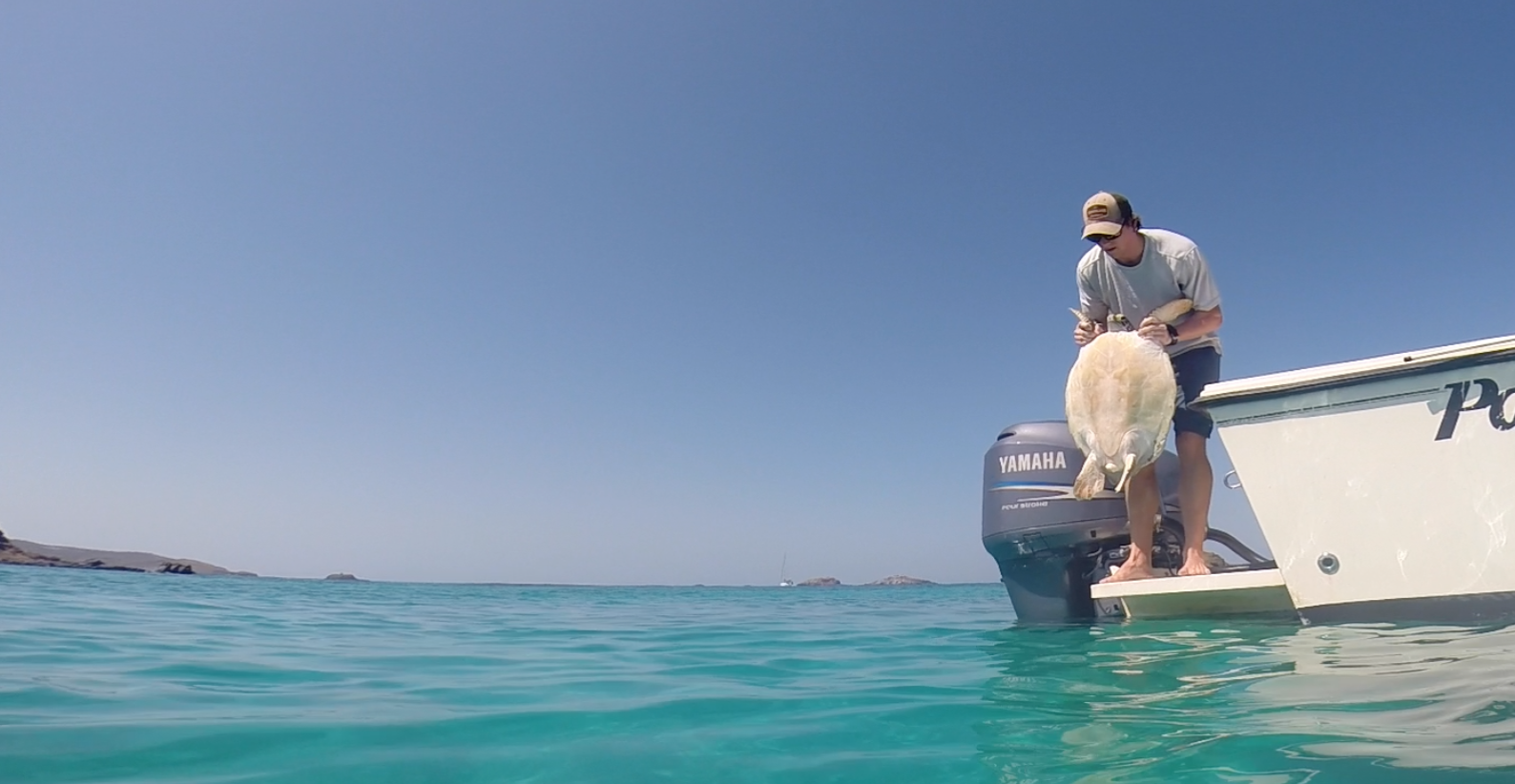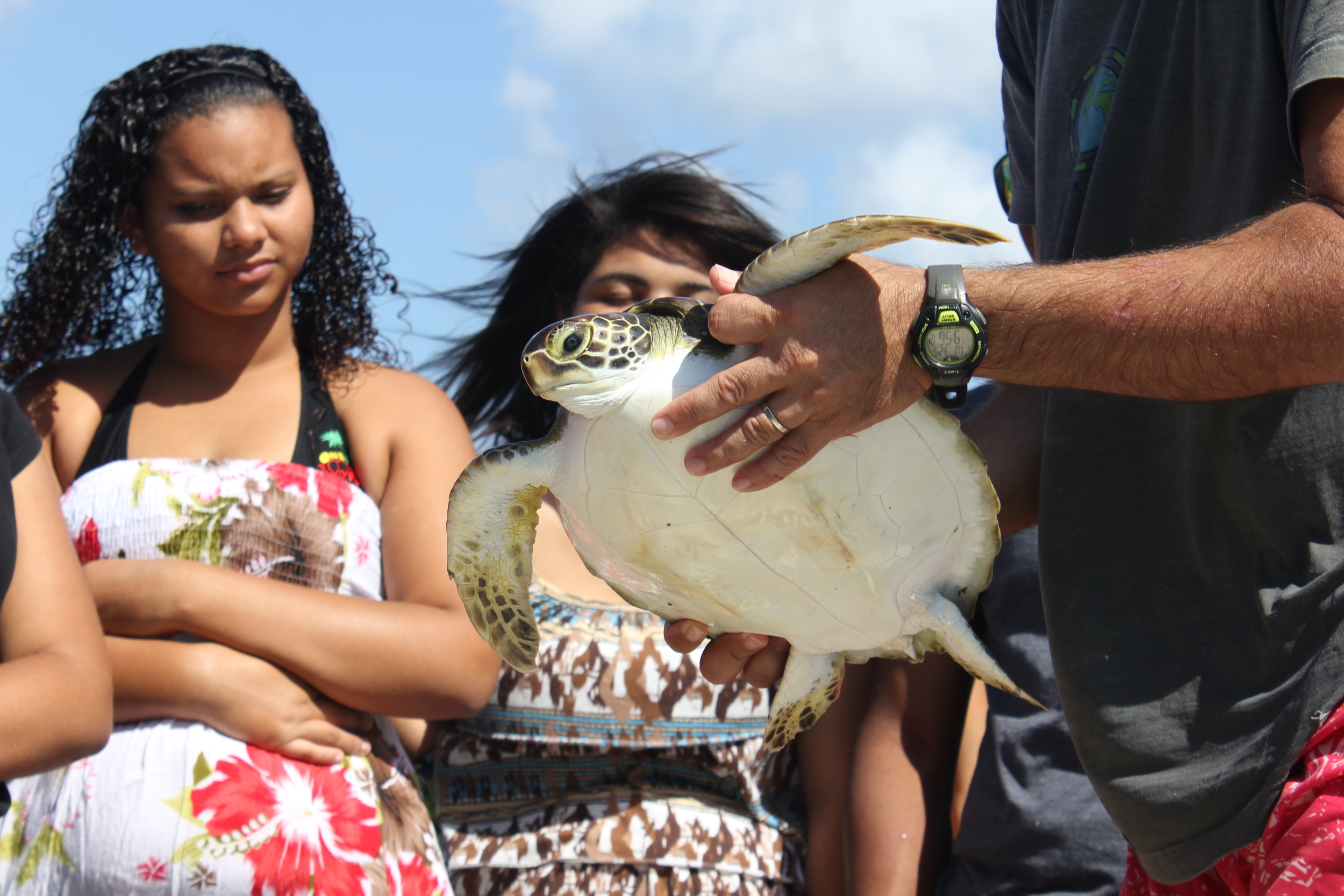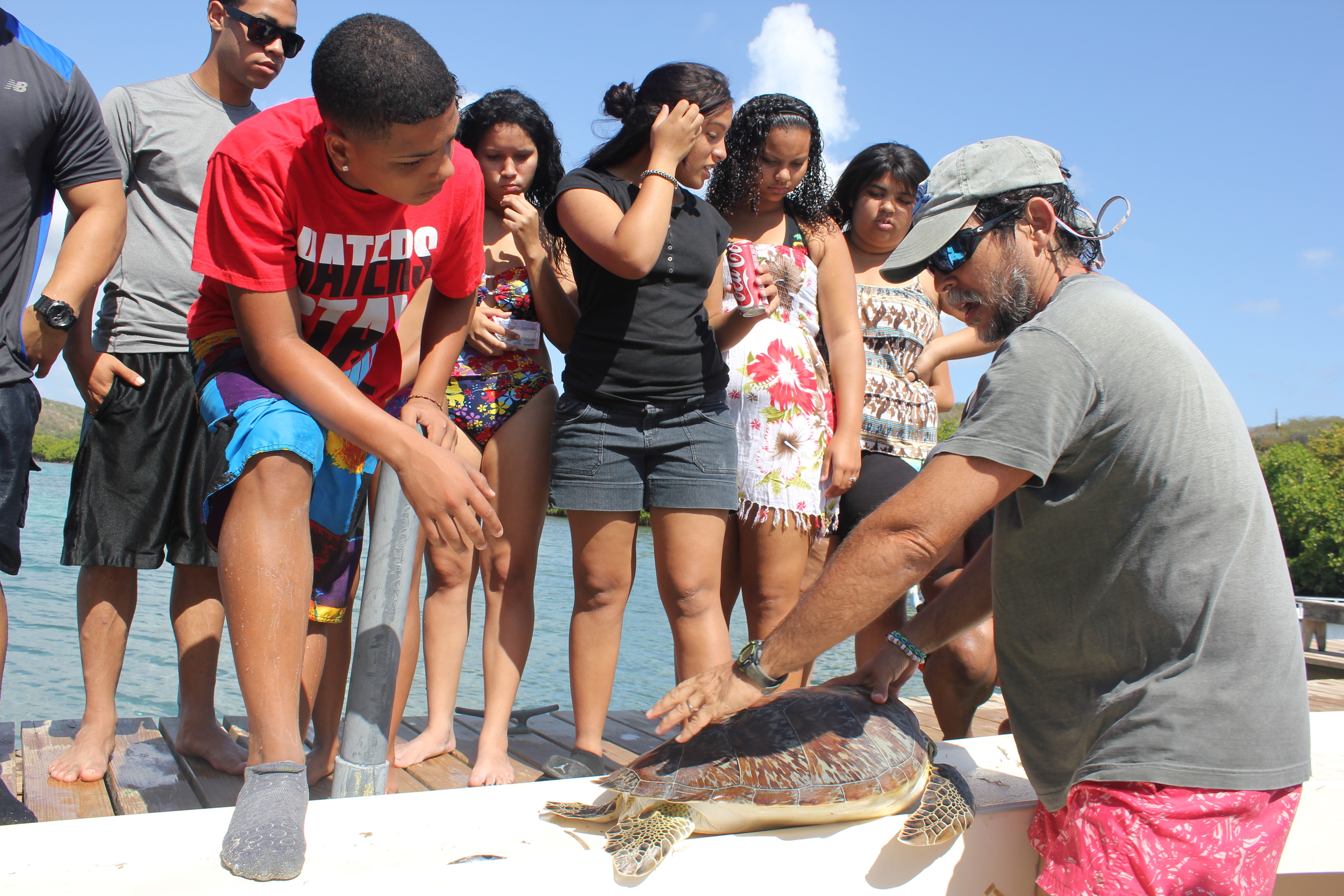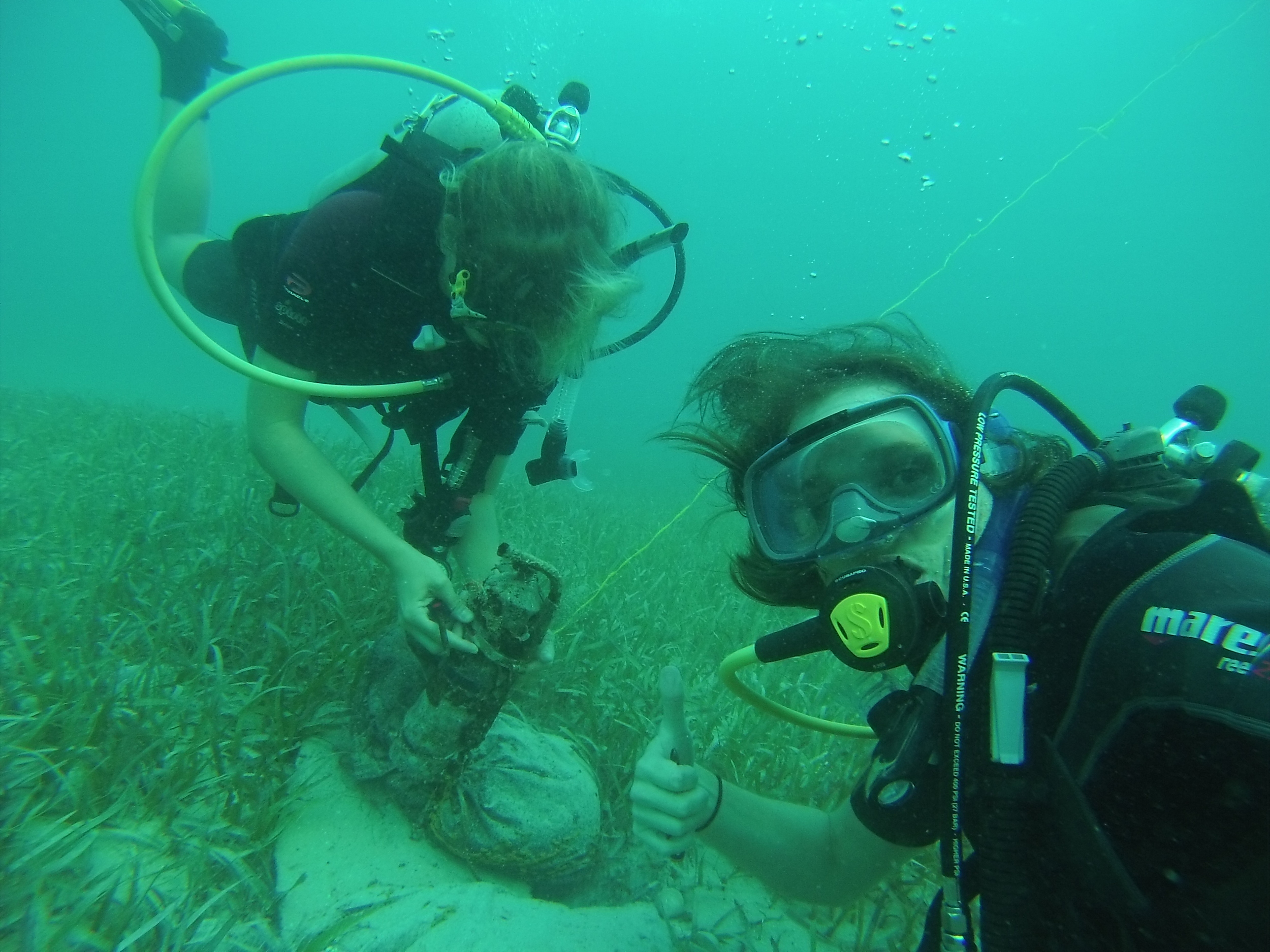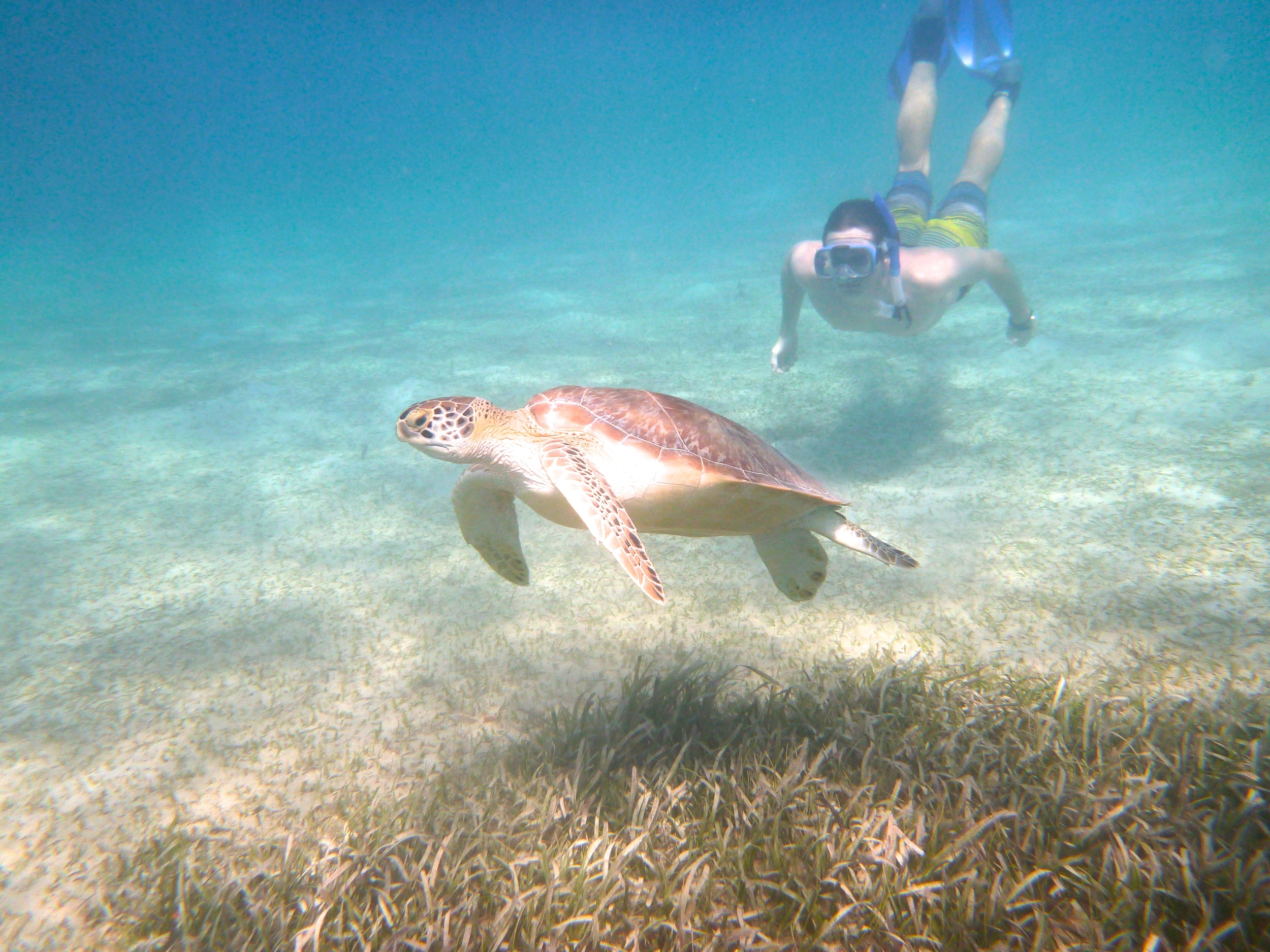UNIVERSITY OF MASSACHUSETTS
September 2013 - Current
My dissertation focuses on using acoustic telemetry to understand the factors affecting the movements and spatial ecology of immature green turtles (Chelonia mynas) using the Culebra Archipelago and to experimentally assess the effects of snorkelers on the behavior of immature green turtles.
Movement patterns of tagged sea turtles are monitored through the use of a fixed acoustic receiver array comprised of 59 receivers deployed in conjunction with bonefish, permit, and barracuda research projects underway in the Culebra Archipelago. 34 acoustic receivers were strategically deployed as nodes within central bays and around the perimeter of the island to observe broader scale movements. 25 acoustic receivers were deployed as a fine-scale tracking network (Vemco Positioning System) for a detailed quantification of movement and habitat use.
Culebra Turtle Conservation - Video produced by Tyler Gagne
Viable sea turtle ecotourism operations depend on the opportunity for tourists to easily observe sea turtles; yet, excessive disturbance of turtles by snorkelers has the potential to shift turtle foraging behaviors to nocturnal foraging or avoidance of better quality but high ecotourism traffic areas. The secondary goal of my thesis is to quantify the response of immature green turtles to disturbance by snorkelers, and to determine whether turtles exhibit consistent individual-level responses. These data may provide a measure of the vulnerability of immature green turtles to disturbance by tourists, providing a basis for developing management guidelines and insight into ecological processes.
Collaboration / assistance with additional research projects based in Culebra, Puerto Rico: acoustic telemetry study on bonefish, permit, and barracuda (Carleton University & UMASS), study on physiological stress and reflex impairment of recreationally angled bonefish (Carleton University & UMASS), CPUE study on barracuda (UMASS), field support for a 15 year-long green turtle mark-and-recapture study (DRNA), field support for a study on spatial ecology of adult and juvenile queen conch in impacted and non-impacted habitats (NOAA)
Experience includes: statistical programing and modeling in R, designing acoustic telemetry arrays, implementing receiver deployment, range testing, and maintenance, capturing, morphometrics, and tagging of green turtles with acoustic sonic transmitters, habitat surveys, conch density surveys, capture and assistance in surgical transmitter implants of fishes, implementing reflex action mortality predictors, field blood sampling and testing, community outreach

